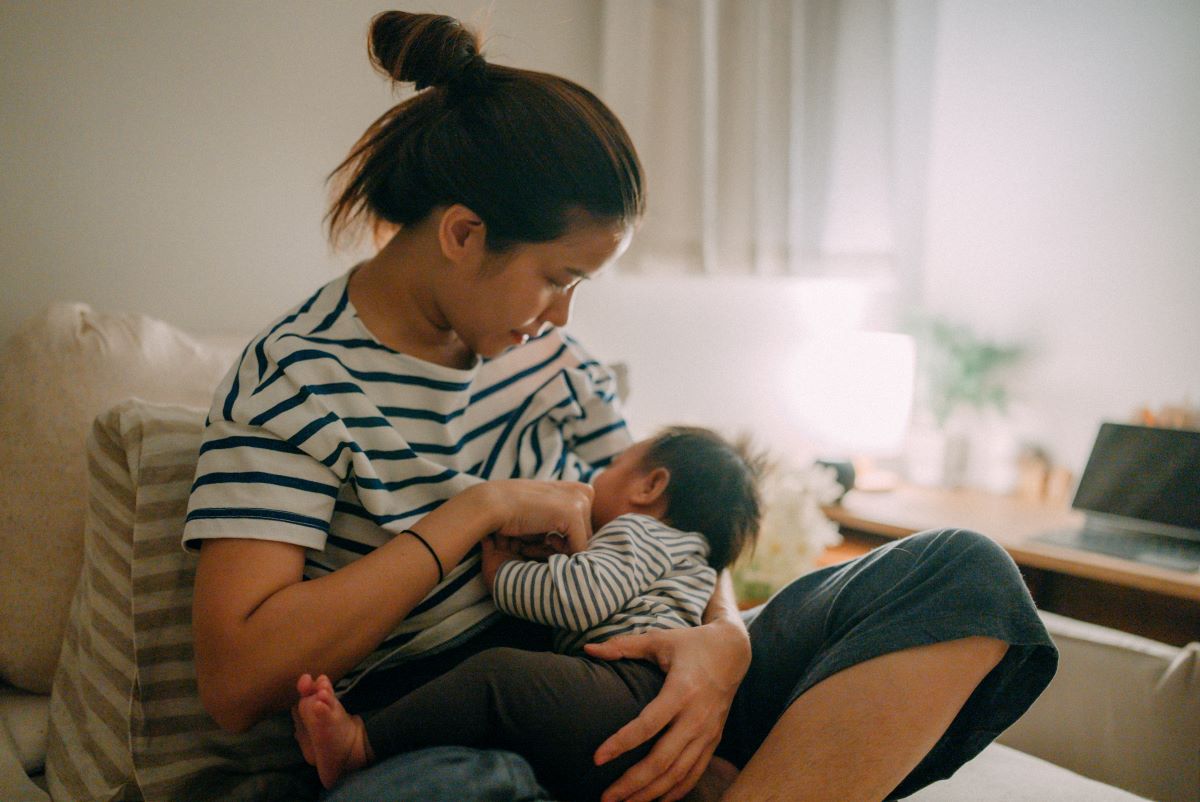Can you smoke cannabis while pregnant or breastfeeding?
The short answer is no - consuming cannabis while pregnant or breastfeeding is not recommended. Let's dig into why.
Some of the most common questions about cannabis usage are related to pregnancy: "Should I smoke cannabis while pregnant?" "Does cannabis affect breast milk?"
There are also many misconceptions, like the idea that because cannabis is just a plant, it can’t be dangerous. Of course, that’s not true. There are many naturally occurring plants that you wouldn’t feed your baby, such as tobacco, opium, or poisonous mushrooms. It’s important to treat cannabis the same way.
Even if you are a regular cannabis user, choosing to use during pregnancy or while breastfeeding is not a decision to take lightly. The fact is that cannabis is not harmless – it can affect you, your pregnancy, and your developing baby.

What does the research say?
Scientists are still studying this subject. Researching cannabis and its effects was difficult for many years while the drug was illegal, but there is more and more research coming out now. Studies so far show that there is no known safe amount of cannabis use during pregnancy. So the safest choice is to not use at all.
While research is ongoing on this topic, studies so far make it clear that smoking any substance, including cannabis, can harm pregnant women and their developing babies. This is partly due to the smoke itself - cannabis smoke contains many of the same toxic, carcinogenic chemicals and particulates found in tobacco smoke. For this reason, expectant mothers should also avoid second-hand cannabis smoke since it may cause the same harmful effects as using cannabis first-hand.
Using cannabis may affect your ability to get pregnant - studies show that cannabis may affect menstrual cycles, sperm count and quality. It's something to consider for both men and women, not just during pregnancy but in the months leading up to it.
While smoking is known to be harmful to both mom and baby, it doesn’t necessarily mean that other methods of consuming cannabis are safe. Research shows that the THC and CBD can pass from mom to baby through the placenta during pregnancy. This means your baby is exposed to harmful chemicals that may affect their brain development. These changes may cause behavioural and/or mental health issues that may last through childhood and adolescence.
Studies suggest that using cannabis while expecting may be associated with low birth weight, pre-term labour, and stillbirth. In addition, babies born pre-mature often have more health concerns and need special care, as opposed to babies born full-term.
You may know someone who used cannabis to treat morning sickness – and their baby may well have been born perfectly healthy. The fact is that cannabis is not a proven treatment for morning sickness. Any medication prescribed to expecting mothers has undergone several clinical trials and evaluations to determine the short and long-term effects on both mom and baby.
Cannabis use during pregnancy has not been studied in clinical trials the same way as other drugs have. If you are struggling with morning sickness, talk to your doctor about what is the safest option for you and your baby.
Cannabinoids are stored in breast tissue which is made up of fat cells. Those fat cells store cannabinoids and leak them into the breastmilk as it is produced which passes cannabis from mom to baby while breastfeeding. Pediatricians agree that breastfeeding is the healthiest option for babies, however, it is important to weigh the benefits against the potential risks of exposing your infant to cannabis. Talk to your doctor if you are struggling to balance your cannabis use while breastfeeding.
Evidence suggests that cannabinoids introduced through breastmilk can have adverse short-term effects on infants, with symptoms including difficulties waking up and feeding poorly. Cannabis can remain in breastmilk for days to weeks after using, so if you do plan to use cannabis, it is important to find alternative ways of feeding your baby.
Studies have also found THC in the stools of babies after breastfeeding—indicating that babies absorb and metabolize cannabis from breastmilk. Therefore, small amounts of THC in breastmilk could potentially lead to brain developmental issues in babies. If you want to learn more about the effects of THC on nursing infants, read the “Breastfeeding” section of this research report.
Another good reason not to use cannabis while breastfeeding or caring for an infant—it can be detrimental to a nursing mother’s judgement and alertness. As such, you may not easily recognize important cues for hunger, comfort, playing or learning.

I’ve read a study that says cannabis doesn’t harm my baby.
There are many articles and publications, some more scientific than others. It’s easy to find something online that simply confirms our beliefs or what we hope to hear. Some “studies” found online are based only on small groups of people or even just surveys. A good study is well designed, methodical, peer-reviewed, and published in a reputable academic journal. No matter what any study says, it’s important to look at what all or most studies say, on average. Reliable scientific findings can usually be reproduced. If one study goes against what most other studies say, it’s likely flawed, even if it’s not yet clear why. So go with the scientific consensus, not just what one study says.
What if I still choose to use cannabis while pregnant?
There is no known safe amount of cannabis consumption for pregnancy or breastfeeding. Zero-use is the best way to reduce the risks of cannabis to you and your baby.
We don't recommend using cannabis while pregnant or breastfeeding, but if you choose to continue we suggest you speak with your health care provider. After you've spoken with your doctor and if you choose to continue your cannabis use, visit this site for more tips.